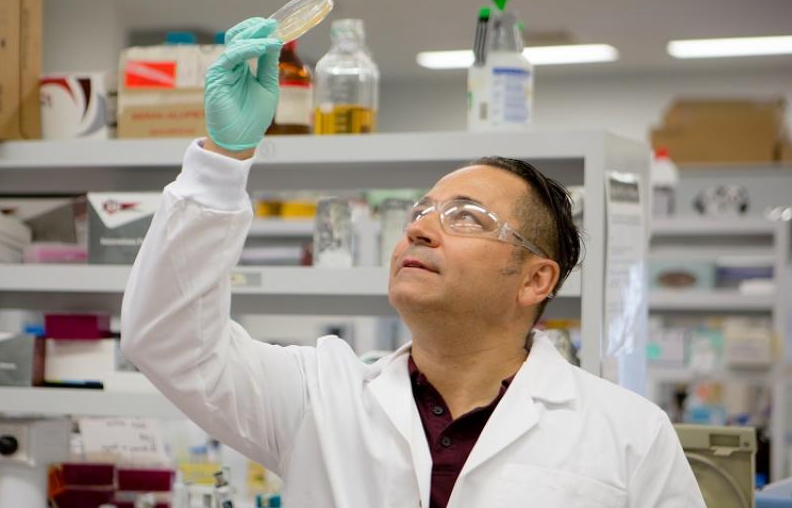AI-powered ‘Knowledge Engine’ is a Game-changer for Antibiotic Resistance
Published on by Water Network Research, Official research team of The Water Network in Academic
A groundbreaking project to tackle one of the world’s most pressing and complex health challenges – antimicrobial resistance (AMR) – has secured a $1 million boost.
The University of Technology in Sydney, Australia will lead a consortium of 26 researchers from 14 organisations in the development of an AMR ‘knowledge engine’ capable of predicting outbreaks and informing interventions, supported by a grant from the Medical Research Future Fund.
“AMR is not a simple problem confined to health and hospital settings,” explains project Chief Investigator, UTS Professor of Infectious Disease Steven Djordjevic. “Our pets and livestock rely on many of these same medicines, so they find their way into the food chain and into the environment through animal faeces.”
If left unchecked, AMR is forecast to cause 10 million deaths annually by 2050, and add a US$100 trillion burden to health systems worldwide.
“If we truly want to track, trace and tackle AMR, we need to know how it develops and is propagated in our environment and our agricultural systems as well as through human-to-human transmission,” says Djordjevic. “It’s what’s called a One Health approach.”

When bacteria change, antibiotics can stop working. (Image source: UTS.edu.au)
Named OUTBREAK – short for One-health Understanding Through Bacterial REsistance to Antibiotics Knowledge – the team will deliver an integrated spatial and temporal map and AI-powered ‘knowledge engine’ of AMR in Australia.
“Every city, town, region and country will have a different AMR fingerprint and therefore different risks,” says Djordjevic. “Our vision, ultimately, is a worldwide AI-powered network for AMR surveillance and mitigation, led by Australian research and industry.”
By ingesting numerous data streams from people, animals and the environment and combining them with AMR science, the technology will allow anticipation of AMR outbreaks, determination of AMR origins, and evaluation of the risks and cost-effectiveness of treatments and intervention strategies for individuals and communities.
“This is an exciting initiative, with the potential to make a real difference to global health, environmental, social and economic outcomes,” says UTS Deputy Vice-Chancellor (Research) Professor Kate McGrath. “It’s an excellent example of the significant impact we can aspire to when we leverage our research strengths, forge strong partnerships and collaborate across disciplinary boundaries.
“The government’s strategic investment in this project recognises that it is both innovative at an international level, and that it has significant potential to have a transformative impact on health care.”
“Our vision, ultimately, is a worldwide AI-powered network for AMR surveillance and mitigation, led by Australian research and industry.”

Professor Steven Djordjevic. Photographer: Catherine McElhone (Image source: UTS.edu.au)
OUTBREAK builds on internationally-recognised Australian research and the project is supported by 14 collaborating entities: UTS, University of South Australia, University of Wollongong, University of Newcastle, CSIRO, NSW Department of Primary Industries (DPI), The Sax Institute, the Quadram Institute (UK), Sensing Value, Microba, Zygem (NZ), Southern-IML Pathology, Oracle, and the Illawarra Shoalhaven Local Health District.
At its core is the whole genome sequencing (WGS) and metagenomics research undertaken over the past five years by Ausgem, the Australian Centre for Genomic Epidemiological Microbiology, a collaboration between UTS and the NSW DPI, led by Djordjevic.
The project brings together a multidisciplinary team of scientists and medical researchers with diverse expertise in genomics, metagenomics, microbiome and computational biology, medical geography and spatial epidemiology, patient data handling, data linkage and big data, zoonotic disease, biosecurity, water treatment technologies, behavioural change and social science, risk management, pharmacy, artificial intelligence and machine learning, and health economics, policy, and law.
It is one of 10 successful projects to receive a one-year initial grant through the Medical Research Future Fund (MRFF)’s new Frontier Health and Medical Research Program. Designed to enable detailed planning for significant research projects in the health and medical research sector, it will lay the foundation for further MRFF funding of up to $5 million to develop and deploy the new technology.
Professor Steven Djordjevic is the UTS research lead for AusGEM and a professor in the UTS ithree institute, specialising in pathogen proteomics and genomics.
Video Source: AusGEM
Source: UTS
Read more about antibiotic resistance in our Spring Overview.
Attached link
http://www.youtube.com/embed/rozda1m1l1AMedia
Taxonomy
- Research
- Chemical Research
- Database Managment
- Database Software
- Research
- Antibiotics
- Data & Analysis
- AI
- artificial intelligence